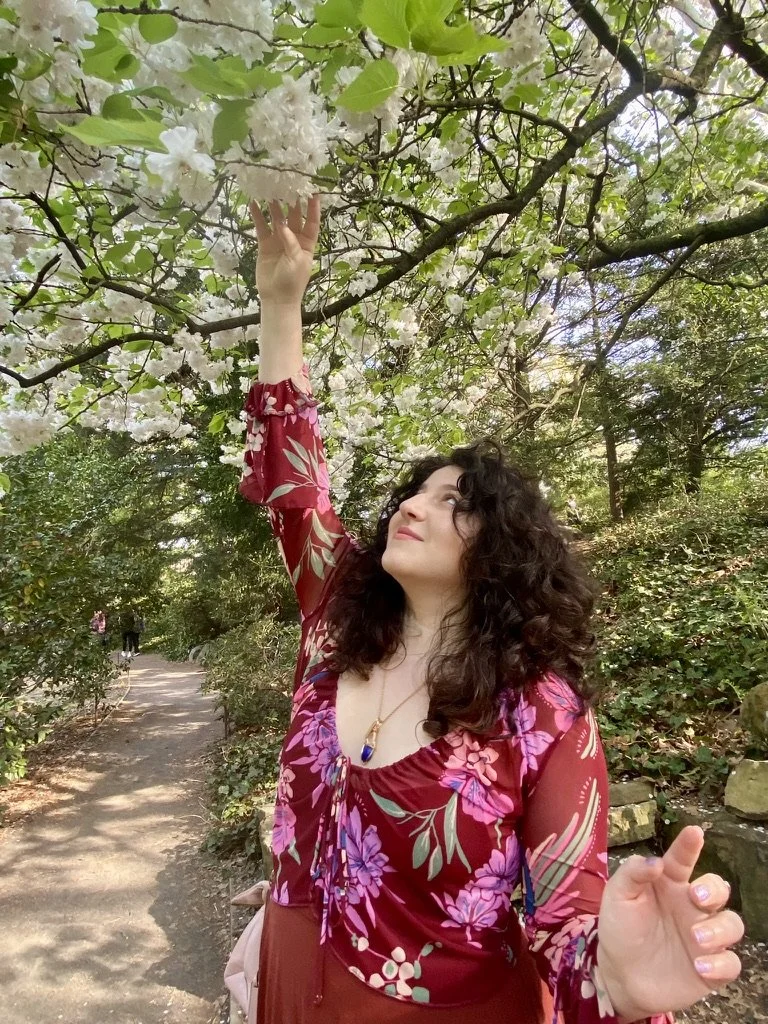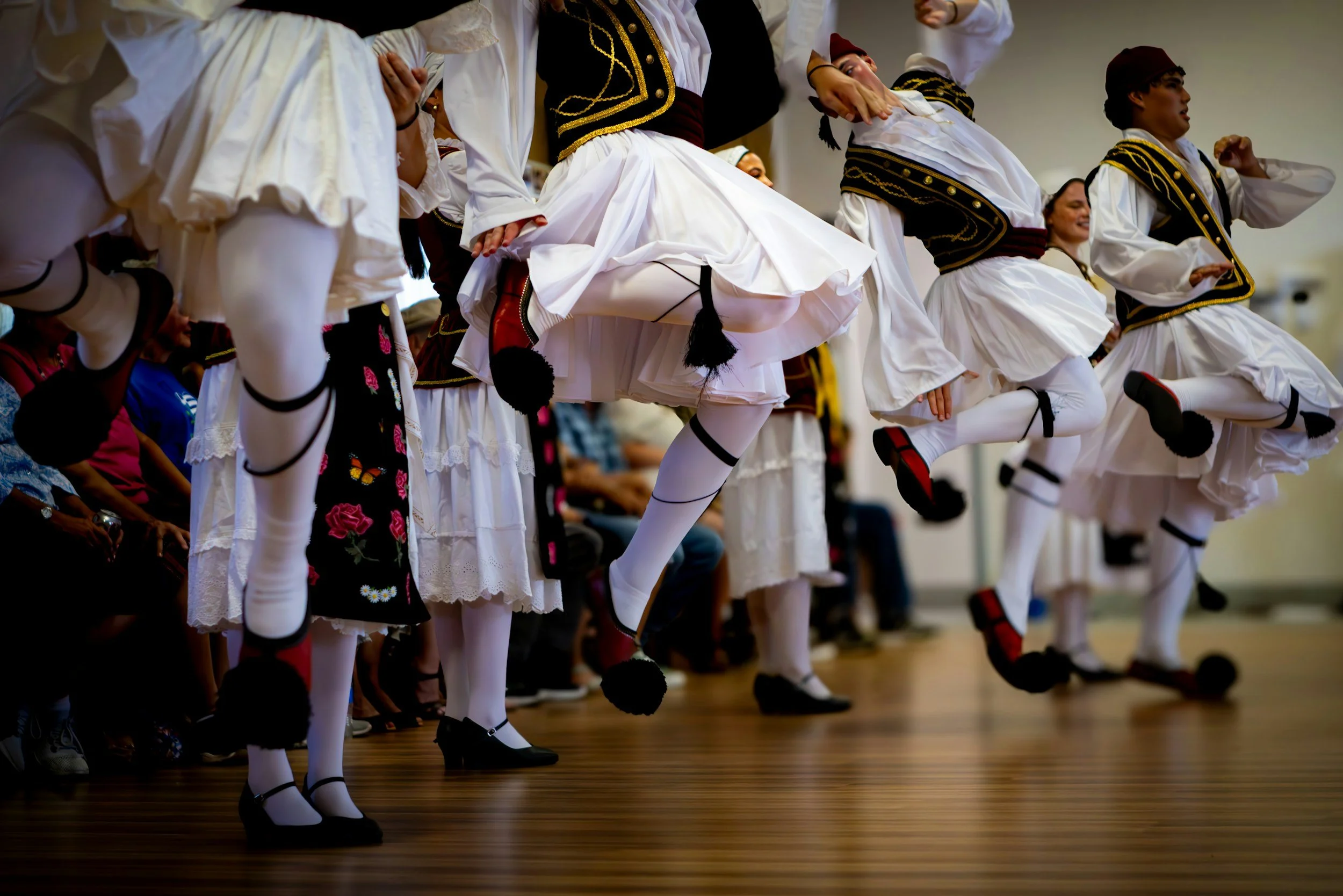
Therapy for Immigrants & First-Generation Americans in New York State
A Safe Space to Honor Your Unique Journey
As an immigrant or first-generation child of immigrants in New York City, you may feel the pull of living between worlds—balancing your cultural roots with the demands of a new life, navigating systemic challenges, or carrying the weight of family expectations.
You're living between two worlds, and some days, you don't feel like you fully belong in either one. You translate—not just language, but entire ways of being. You carry your family's sacrifices on your shoulders while trying to build a life that's authentically yours. You're navigating family expectations, cultural identity, and the weight of making their displacement "worth it."
If you're an immigrant or first-generation American in New York, you know this split intimately. And you deserve support from someone who understands it—not just intellectually, but experientially.
At Enodia Therapies, I offer cross-culturally-attuned therapy for immigrants and first-generation Americans in Brooklyn and throughout New York State. This is a space where your story is understood without explanation, where your complexity is honored, and where you can finally exhale.
My Lived Experience:
I Know This Journey From the Inside
I'm Irene Maropakis, a first-generation Greek-American Creative Arts Therapist. I grew up translating for my parents, navigating two conflicting definitions of success, and feeling the weight of their sacrifice in every decision I made.
I understand what it's like to:
Feel like you're performing different versions of yourself in different contexts
Carry guilt for wanting something different than what your family expects
Grieve a homeland you barely remember (or never knew)
Feel misunderstood by therapists who don't get the immigrant experience
Navigate the pressure to succeed while honoring who you actually are
This lived experience shapes everything I do. When you work with me, you're not explaining your immigrant reality to someone who's read about it in textbooks—you're processing it with someone who's lived it.
Living in NYC as an immigrant or child of immigrants can be vibrant, overwhelming, isolating, and full of impossible contradictions. You might be facing:
Cultural Identity & Belonging
You're not quite American enough for Americans, not quite “your culture” enough for your family. You exist in the in-between, belonging nowhere completely. This isn't just philosophical—it's a daily psychological burden that affects how you move through the world.
Acculturation Stress
You're constantly code-switching, translating, adapting. One version of yourself at work, another at home, another with friends. The exhaustion of performing different identities is real, and it often goes unnamed.
Intergenerational & Migration Trauma
Your family's trauma—from war, poverty, displacement, discrimination—lives in your body even if you didn't directly experience it. You inherit their survival strategies, their fears, their unprocessed pain. This is intergenerational trauma, and it's affecting you now.
The "Good Immigrant Kid" Pressure
You have to be successful. You have to make their sacrifice worth it. Failure isn't just yours—it's betrayal. This pressure creates perfectionism, anxiety, burnout, and a relationship with achievement that's exhausting.
Discrimination & Microaggressions
The subtle (and not-so-subtle) ways you're marked as "other" accumulate. Your accent, your name, your features—each interaction that reminds you that you don't quite fit here takes a toll.
Immigrant Grief & Ambiguous Loss
You grieve family you see through screens instead of across the table. You grieve a language that's fading. You grieve the version of yourself who would have existed if you'd stayed. This grief rarely gets acknowledged, but it's real.
Family Expectations vs. Authentic Self
Your family wants doctor, lawyer, engineer. You want artist, therapist, your own definition of success. The gap between their dreams for you and your dreams for yourself creates guilt, shame, and internal conflict.
Body Image Across Cultures
Your body is too much for one culture, not enough for the other. You're "exotic" but not the standard of beauty. Food is love and control. Your relationship with your body becomes another site of cultural negotiation.
What It Means to Seek Therapy as an Immigrant or First-Generation American
Our therapy for immigrants in NYC and first-generation mental health services are designed to help you navigate these challenges with care and resilience.
Related Blog Posts
Explore these posts that speak to the immigrant experience:
"We Sacrificed Everything for You": Breaking Free from Immigrant Achievement Pressure
The Grief Nobody Talks About: Therapy for Immigrant Loss and Longing
You're Not an Imposter—You're an Immigrant: Therapy for Belonging
"Art Isn't a Real Career": Creative Blocks and Immigrant Identity
Between Two Worlds: First-Generation Immigrant Identity and Belonging
Your Body Between Two Worlds: Body Image & Cultural Expectations
Too Sensitive for Two Worlds: Therapy for Highly Sensitive Immigrants
How Therapy Can Actually Help You
Integrate cultural and personal identity
You don't have to choose between your heritage and your American identity. We'll help you integrate both, creating a self that's authentically yours—not a performance for either culture.
Heal intergenerational trauma
Using EMDR and somatic approaches, we can process the trauma you've inherited and the trauma you've personally experienced, helping your nervous system finally feel safe.
Navigate family expectations with boundaries
Learn how to honor your family while also honoring yourself. Set boundaries that protect you without severing connection. Have the difficult conversations you've been avoiding.
Work through immigrant grief
Give space to the losses that don't have funerals—the distance, the displacement, the versions of yourself that died when you (or your family) left.
Release perfectionism and achievement pressure
Understand where your drive comes from, separate your worth from your achievements, and build a life that's meaningful to you—not just successful by someone else's standards.
Reclaim your creative identity
If you're an artist, writer, or creative person whose family doesn't understand why you'd "waste" your potential on art, we'll work through the guilt and help you claim permission to create.
Heal body image and disordered eating
Address body shame rooted in conflicting cultural beauty standards, food as love and control, and the pressure to assimilate through your body.
Therapeutic Approaches I Use
I work from a depth-oriented, culturally-attuned, trauma-informed lens using:
Somatic Art Therapy
When your struggles live in your body or in a language other than English, art becomes the bridge. We work with creativity to access what words can't reach.
EMDR (Eye Movement Desensitization & Reprocessing)
For processing trauma—whether it's specific incidents of discrimination, family trauma, or the accumulated stress of living between worlds.
Internal Family Systems (IFS) & Somatic Parts Work
Working with the different parts of you—the part that wants to honor your family, the part that wants to live your own life, the part that feels guilty, the part that's angry. Helping these parts communicate instead of fight.
Jungian Art Therapy
For deeper work with identity, shadow integration, and understanding the archetypal patterns that shape your immigrant experience.
Narrative Therapy
Examining the stories you've internalized about success, family, belonging, and worthiness—and deciding which stories actually serve you.
Gestalt Therapy
Creating space for the conversations you need to have—with your family, with your culture, with yourself—in a safe therapeutic container.
Acceptance & Commitment Therapy (ACT)
Clarifying your values (not just your family's values) and taking committed action toward a life that aligns with who you actually are.
What Makes This Work Different
I understand from lived experience
You won't spend sessions explaining the immigrant experience. I get it. We can go straight to the healing.
I honor cultural complexity
I won't pathologize your family closeness as "enmeshment" or push Western individualism that doesn't fit your values. We'll find what works for your unique cultural context.
I work with the body, not just the mind
Immigrant trauma and stress live in your body. We'll work somatically to release what's stored there.
I speak the language of "both/and"
You don't have to choose. You can honor your heritage AND evolve. Love your family AND set boundaries. Be grateful AND grieve. I hold this complexity without asking you to simplify.
I see your whole identity
If you're queer, neurodivergent, disabled, or hold other marginalized identities alongside being an immigrant, I understand that these intersect. Your identities don't exist in isolation—we work with all of you.
Who This Therapy Is For
This work is for you if you're:
An immigrant or first-generation American feeling stuck between worlds
Struggling with anxiety, depression, or burnout rooted in cultural pressure
Carrying guilt about family expectations vs. your authentic path
Experiencing imposter syndrome in professional or academic spaces
Dealing with body image issues across conflicting beauty standards
A creative person whose family doesn't understand your art
Grieving losses that don't have names or rituals
Highly sensitive and overwhelmed by cultural and familial intensity
Navigating intergenerational trauma and family patterns
Ready to build a life that honors both where you came from and who you're becoming
Ready to Begin?
ou don’t have to choose between honoring your family and honoring yourself—therapy gives you space to do both. Learn how culturally sensitive therapy can support your journey in Brooklyn or anywhere in New York State.
Schedule your free 15-minute consultation to explore how culturally-attuned therapy can support your journey in Brooklyn or anywhere in New York State.









